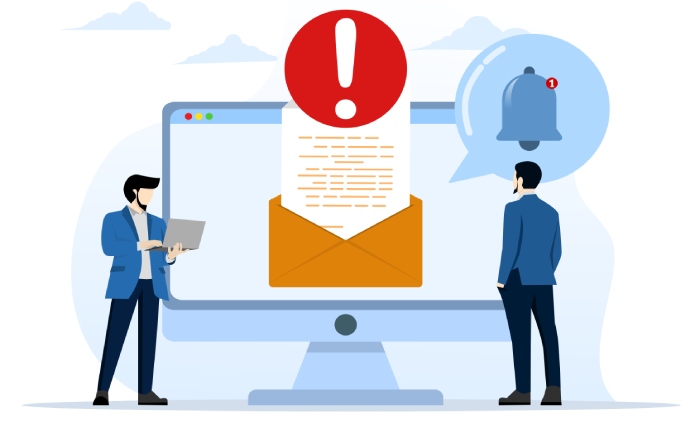SMTP service (i.e., email) today is a commodity. So much so, that many businesses pay some other business to “host” their SMTP service for them. This enables the business to send and receive email without having to buy, set up or manage an SMTP server. And judging by how prices have come down over time, it’s fair to assume that there are a lot of hosted SMTP service providers.
Most hosted SMTP service providers offer a core set of features such as deliverability, email marketing and transactional emails. They typically offer an API that developers can use to build advanced push-workflows. Some even offer plans that come with a limited number of free emails per month to try to win the business in the hyper-competitive market. But with all that these service providers offer, there’s still something missing.
Fact: Most hosted SMTP services offer zero protection. Their service is “Naked.”
If you haven’t heard, spam and phishing are pretty serious problems that stem from email. According to research, phishing is responsible for 91% of cyber-attacks and Americans are now more worried about being a victim of cybercrime that being a victim of a violent crime.
It’s no longer enough for hosted SMTP providers to just send and receive an email. They have a responsibility to protect the senders and receivers from malicious and bothersome emails too.
That’s right, even senders of email have to be protected. It’s called outbound spam and most email senders don’t even know they’re sending it because their hosted SMTP server has been compromised. So, without any awareness, businesses can be sending out annoying or offensive emails which could ruin the reputation of their business.
If you’re in the market for hosted SMTP services, make sure the one you choose incorporates advanced protection right into the service as an essential step to keeping your business secure.
What kinds of security features should you expect in a well-protected hosted SMTP service? At a minimum, you’ll want these four:
- Anti-virus
- Inbound spam filtering
- Outbound spam filtering
- Phishing protection with Smart Quarantine and real-time link protection
If you really want to ratchet up the protection, make sure your hosted SMTP allows you to send DKIM-signed email. DKIM, or DomainKeys Identified Mail, is an email authentication method designed to detect forged sender addresses in emails, (email spoofing), a technique often used in phishing and email spam. DKIM allows the receiver to check that an email claimed to have come from a specific domain was indeed authorized by the owner of that domain.
Not sure where you can find a hosted SMTP provider that offers all this protection integrated right into the service at no extra cost? Head on over to DuoCircle and get secure email hosting for your business. Let everyone else go naked.

